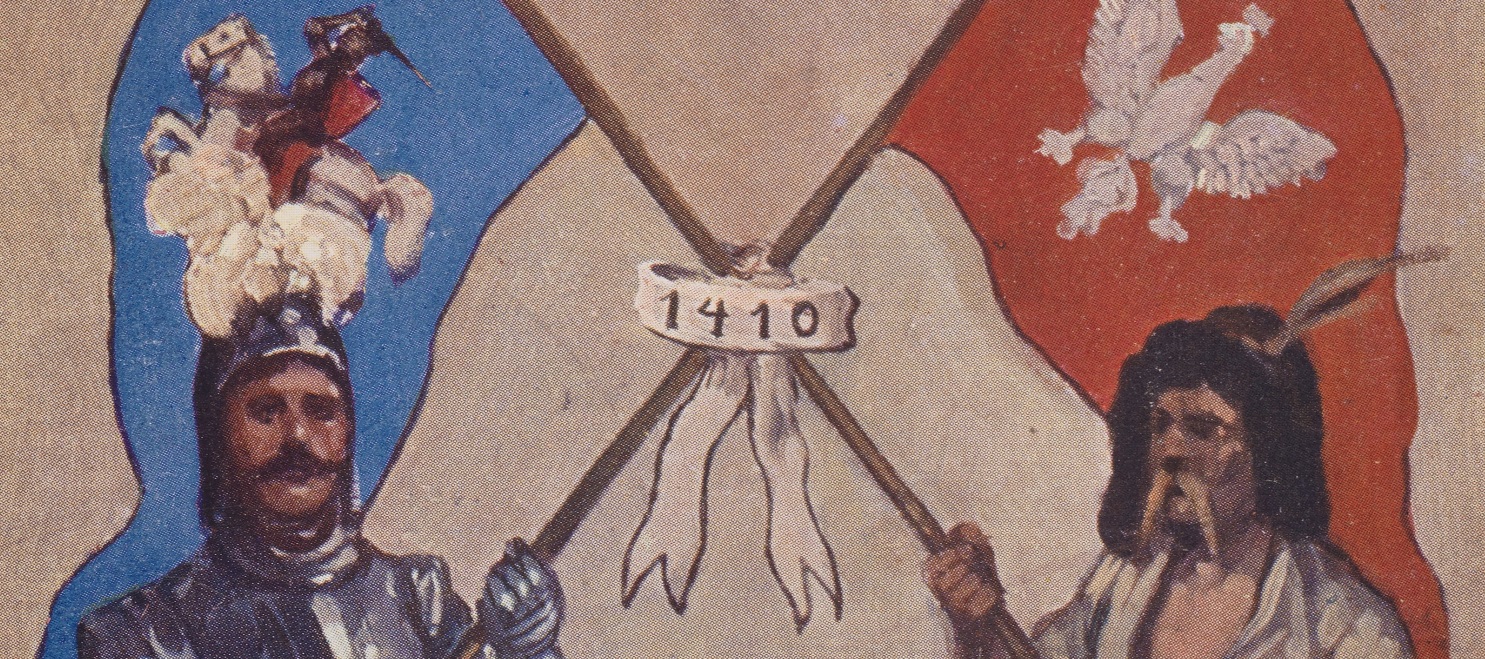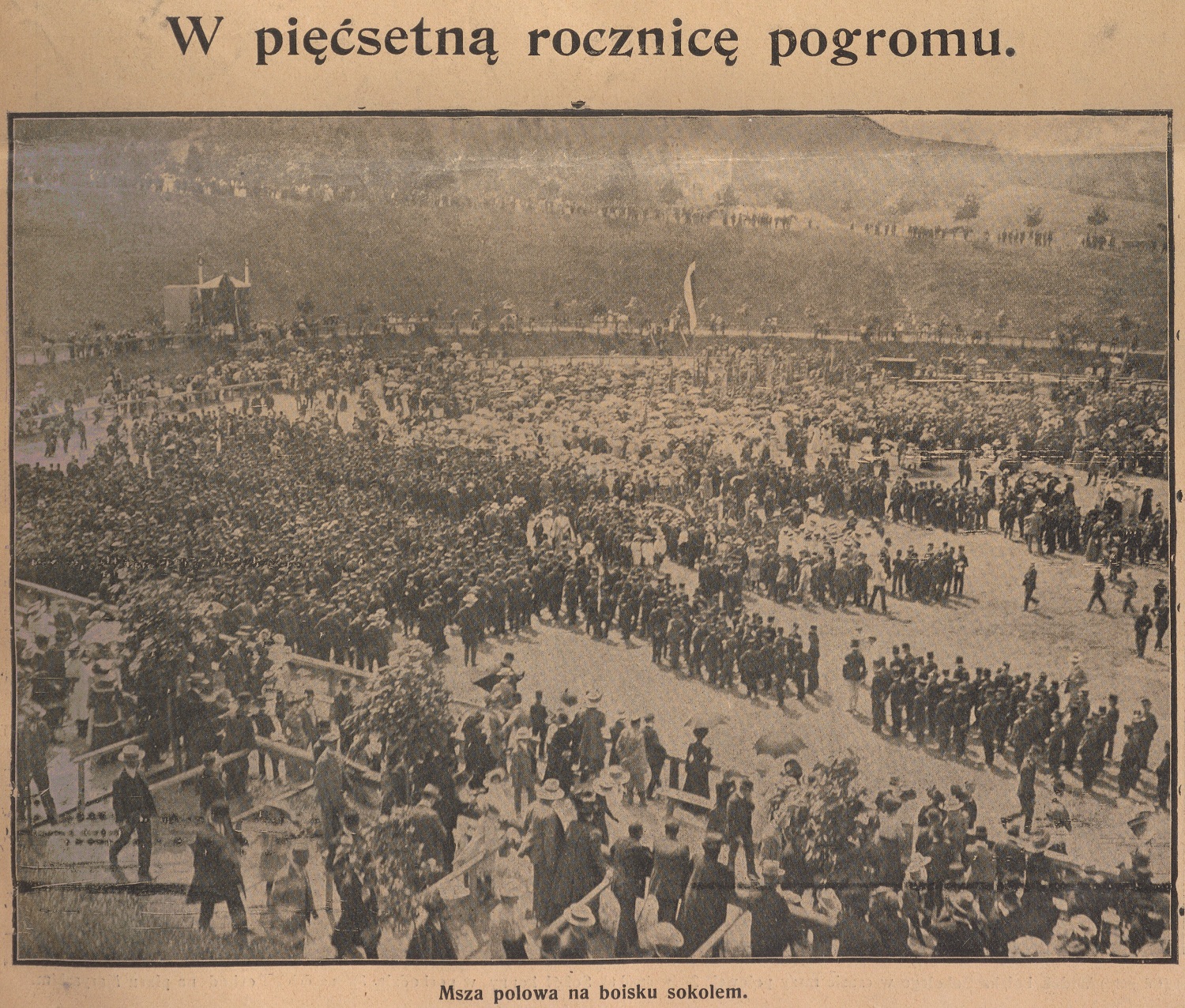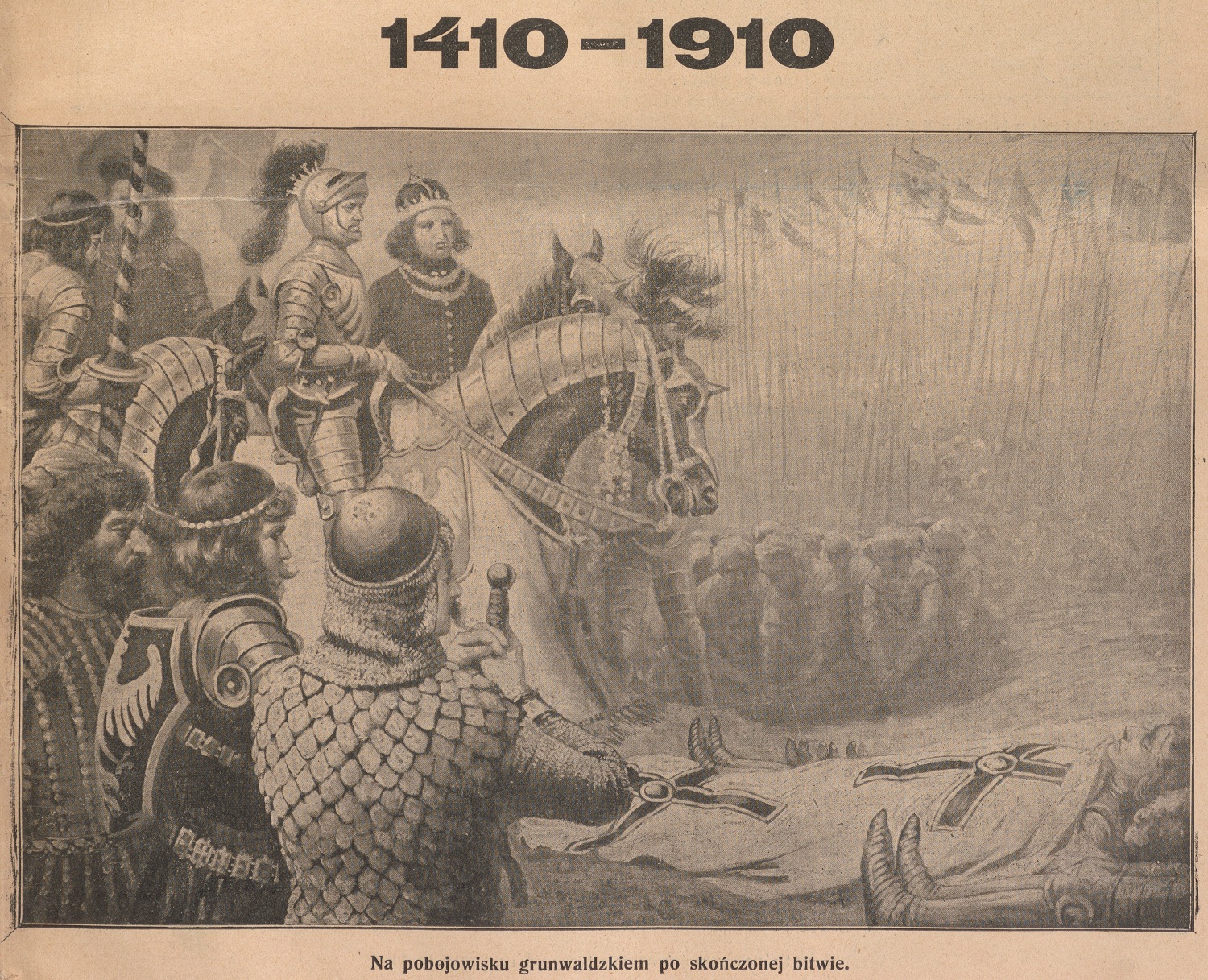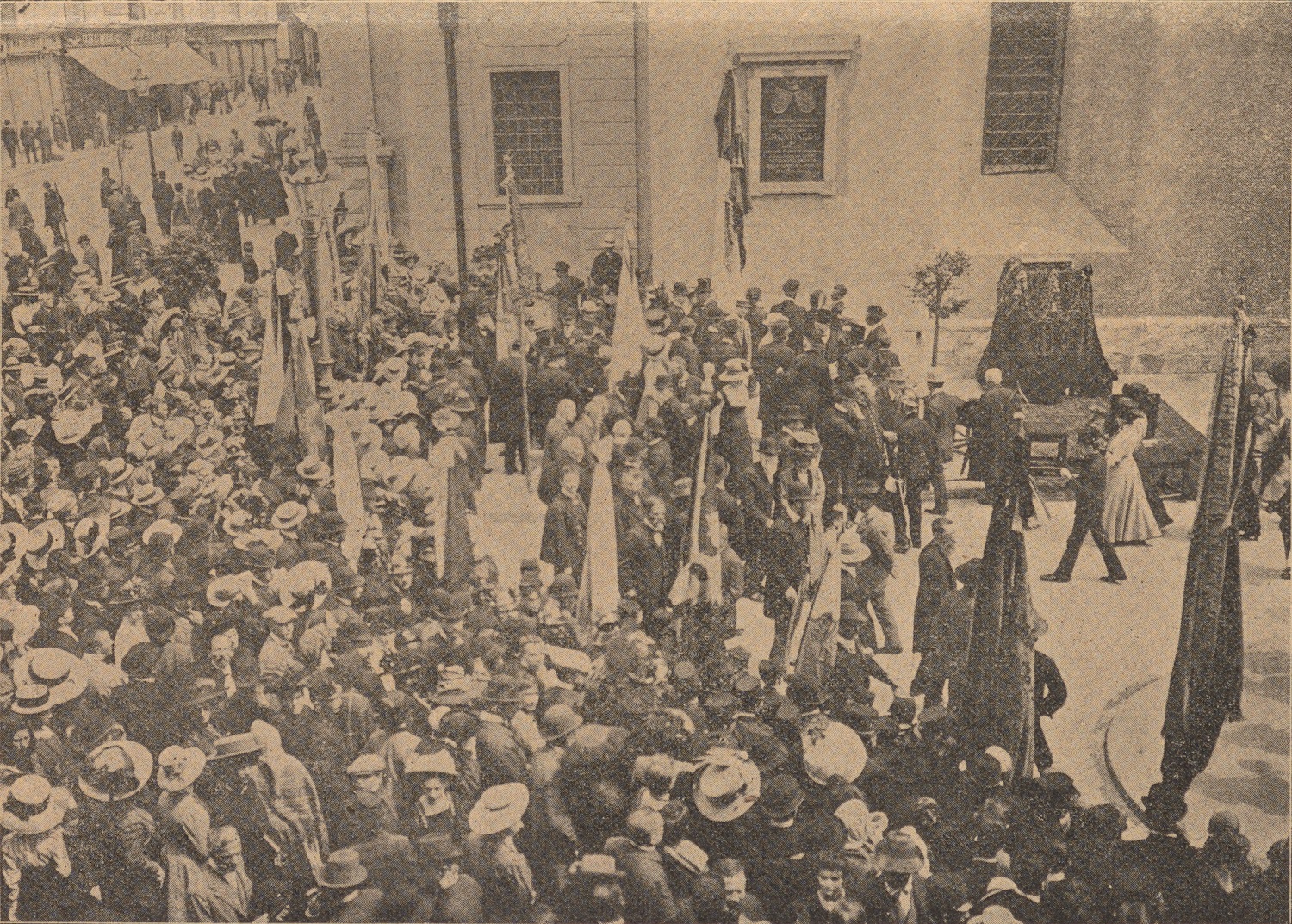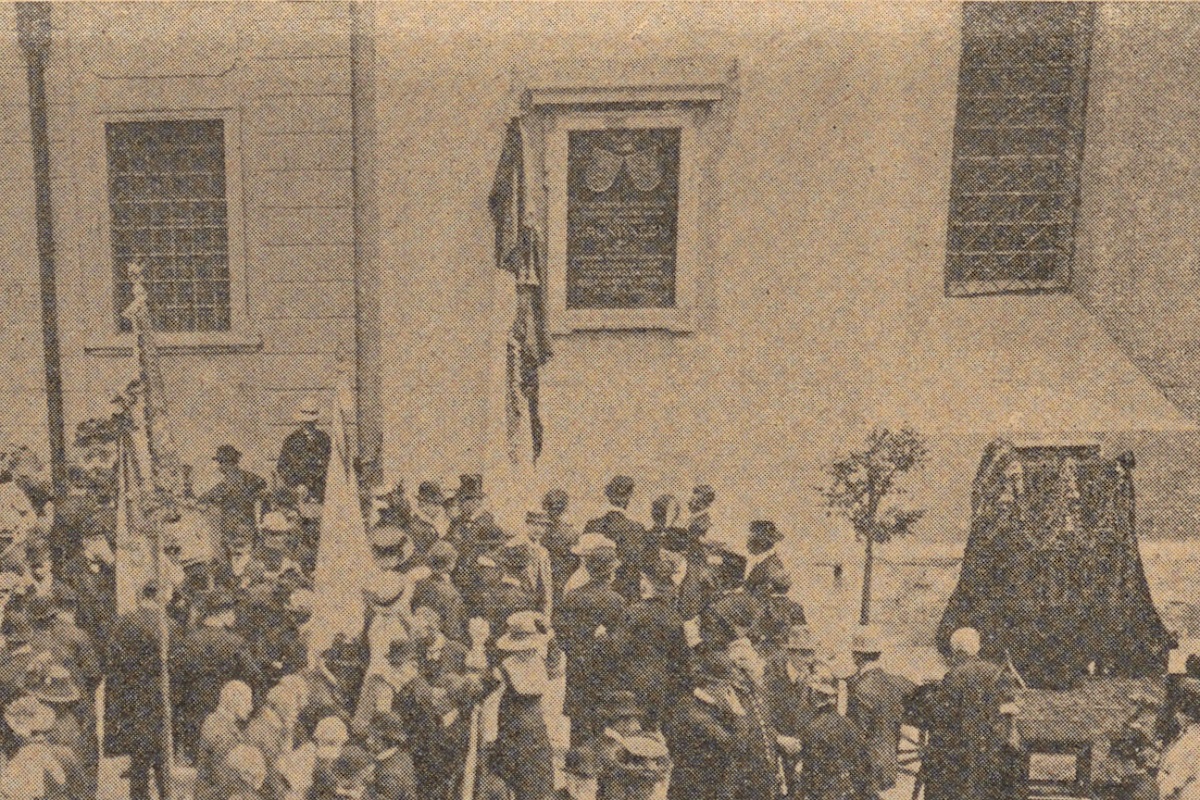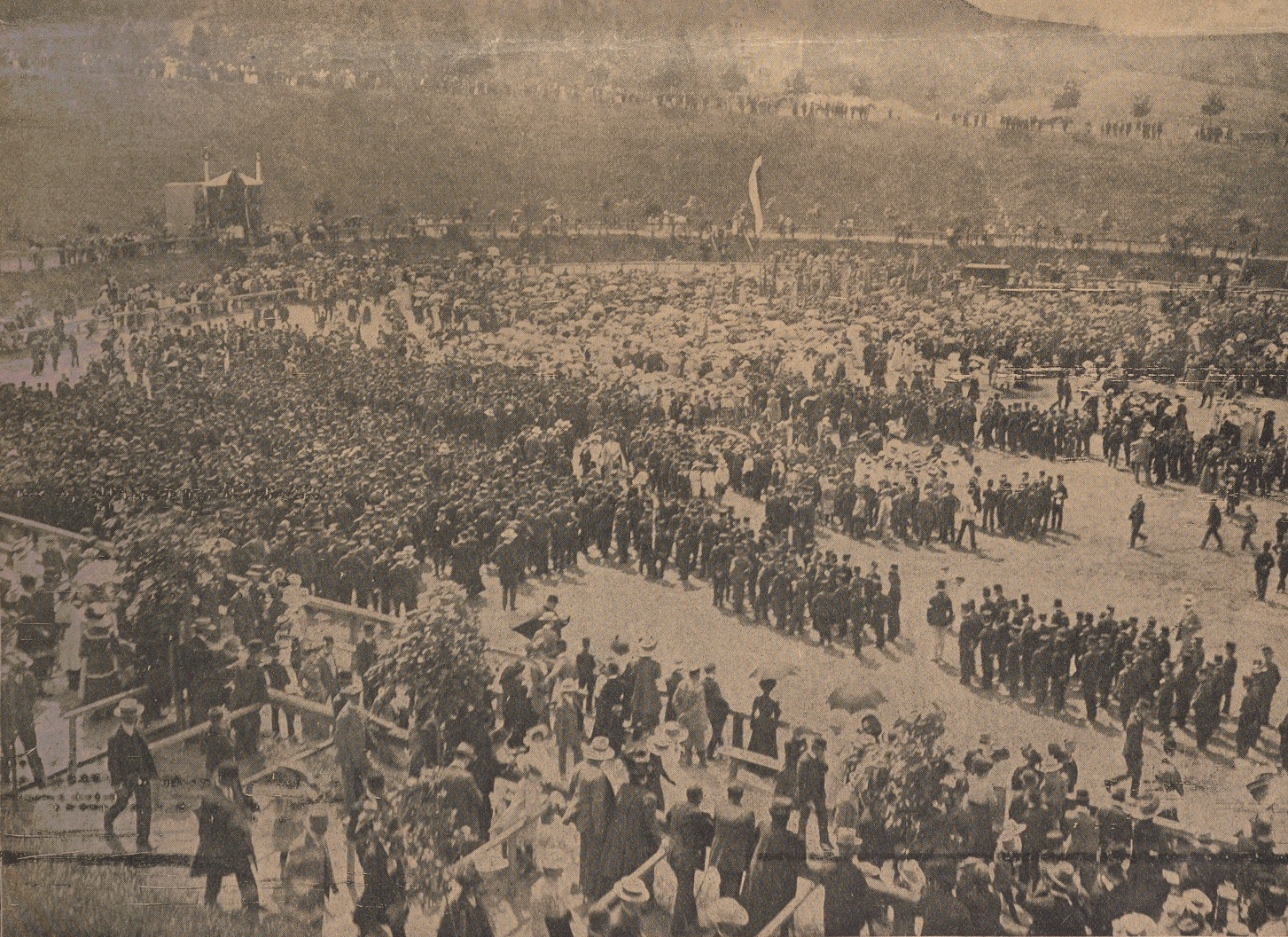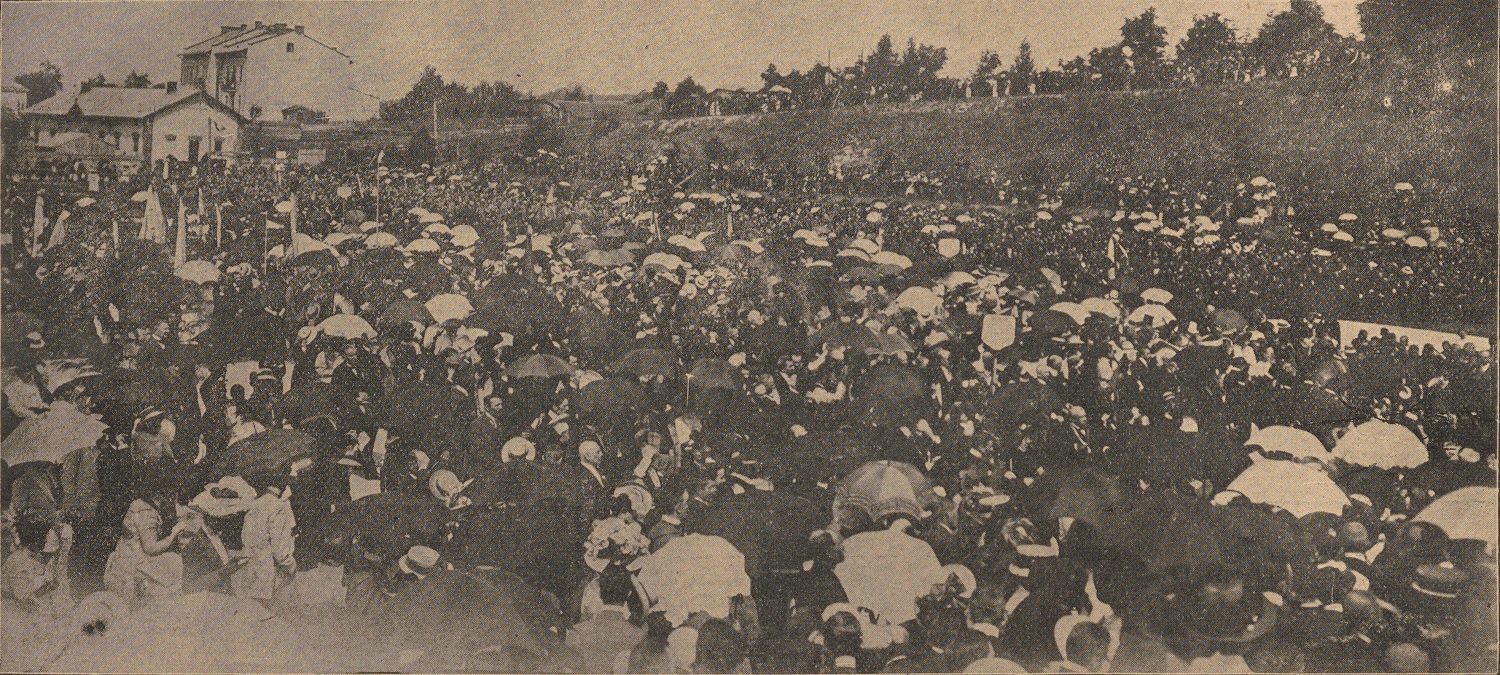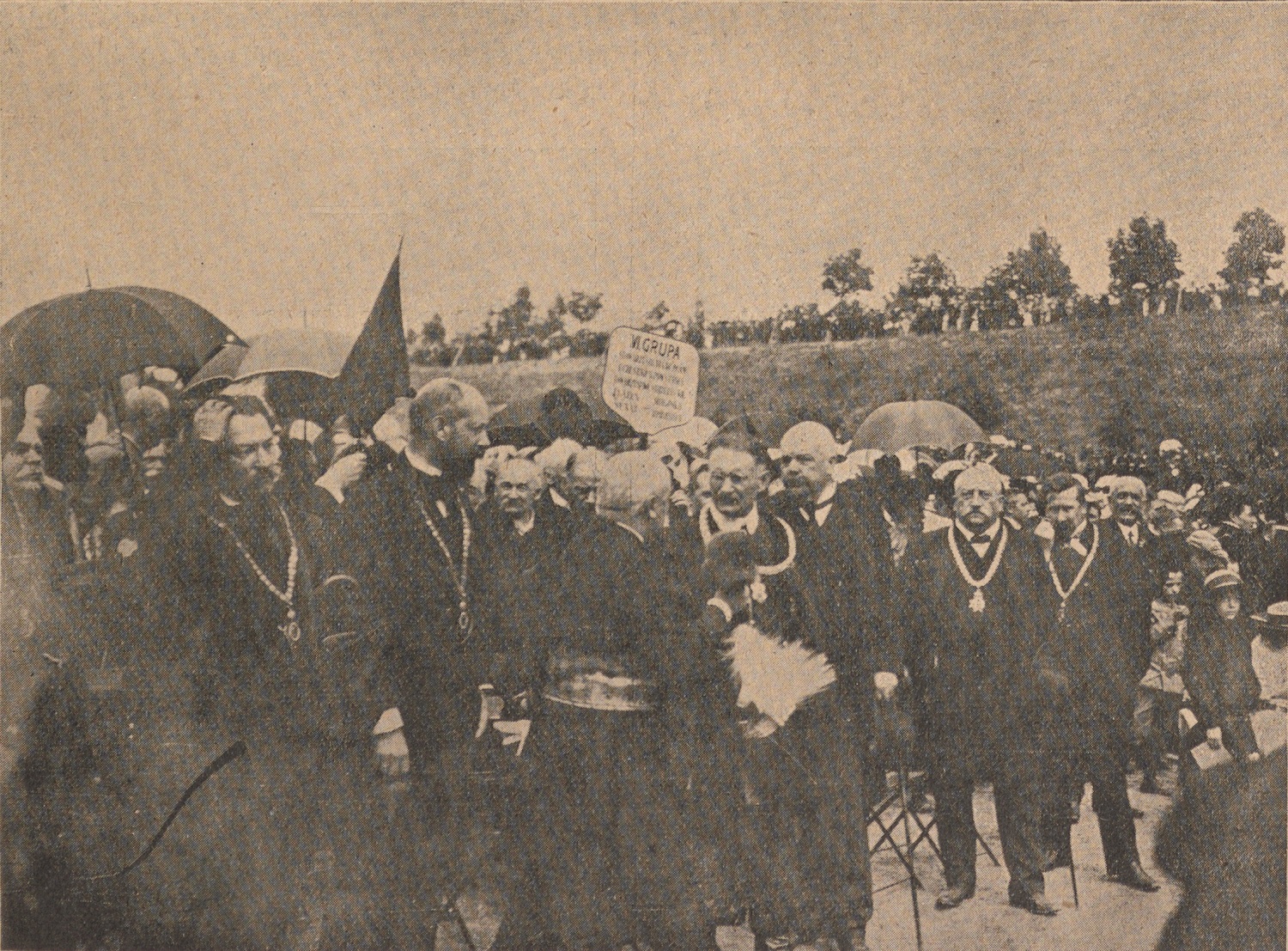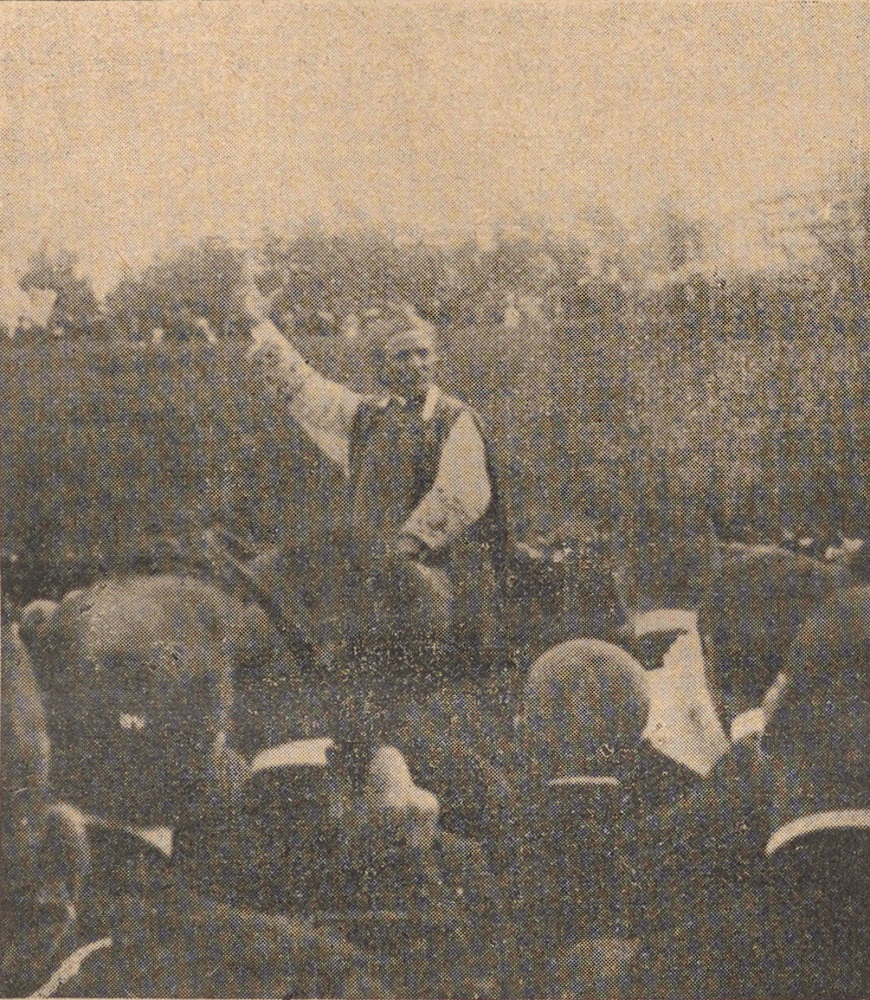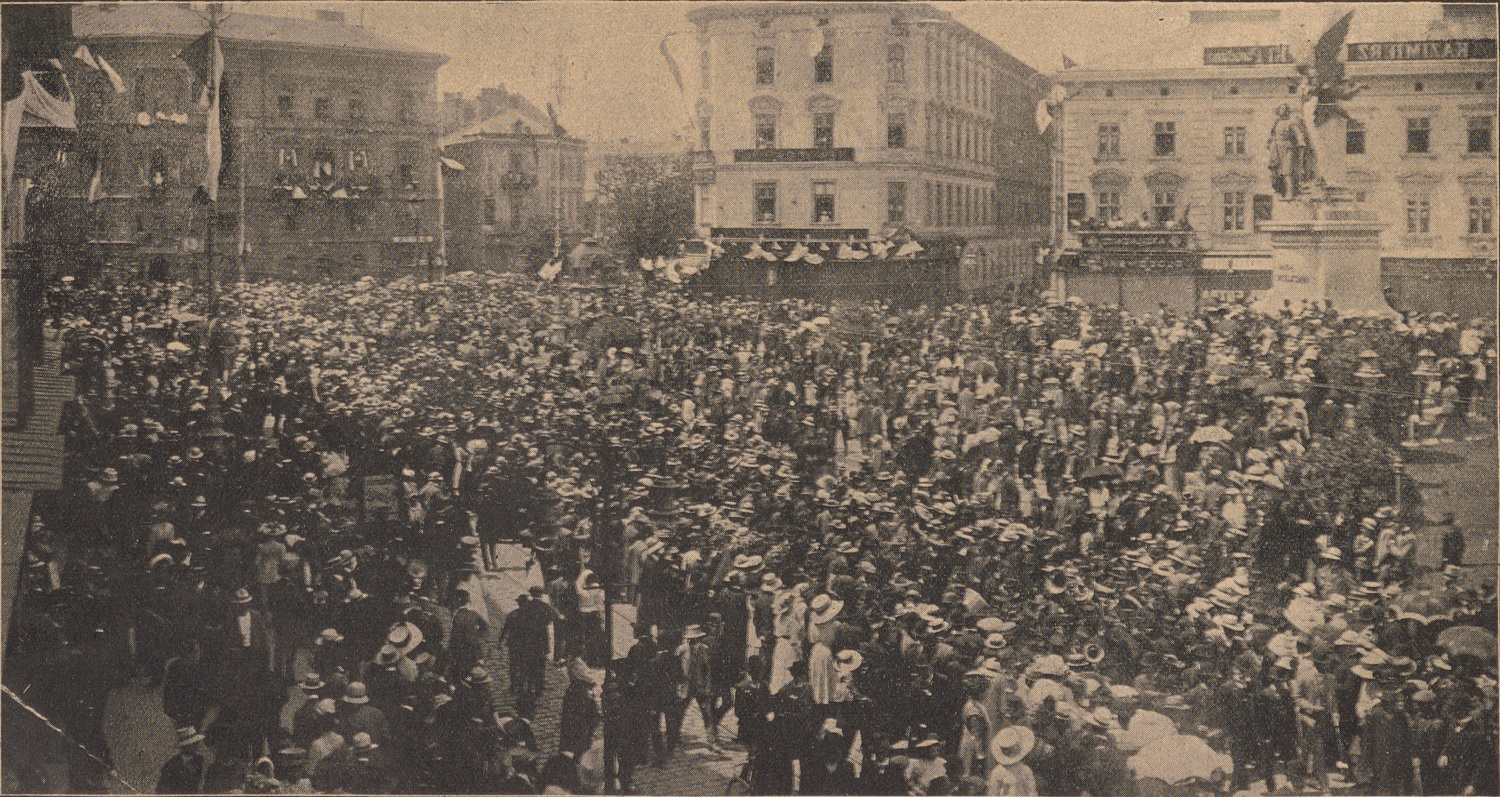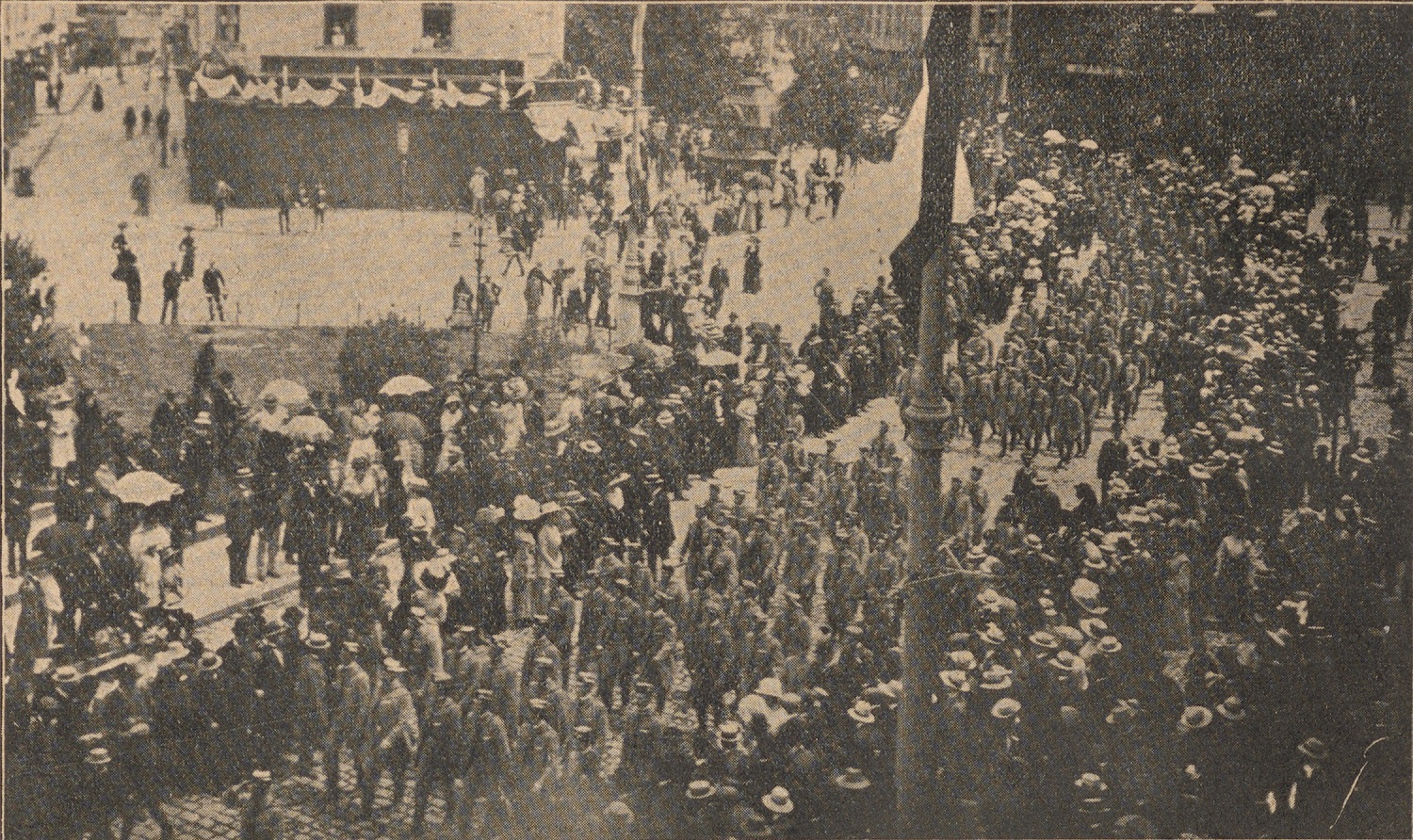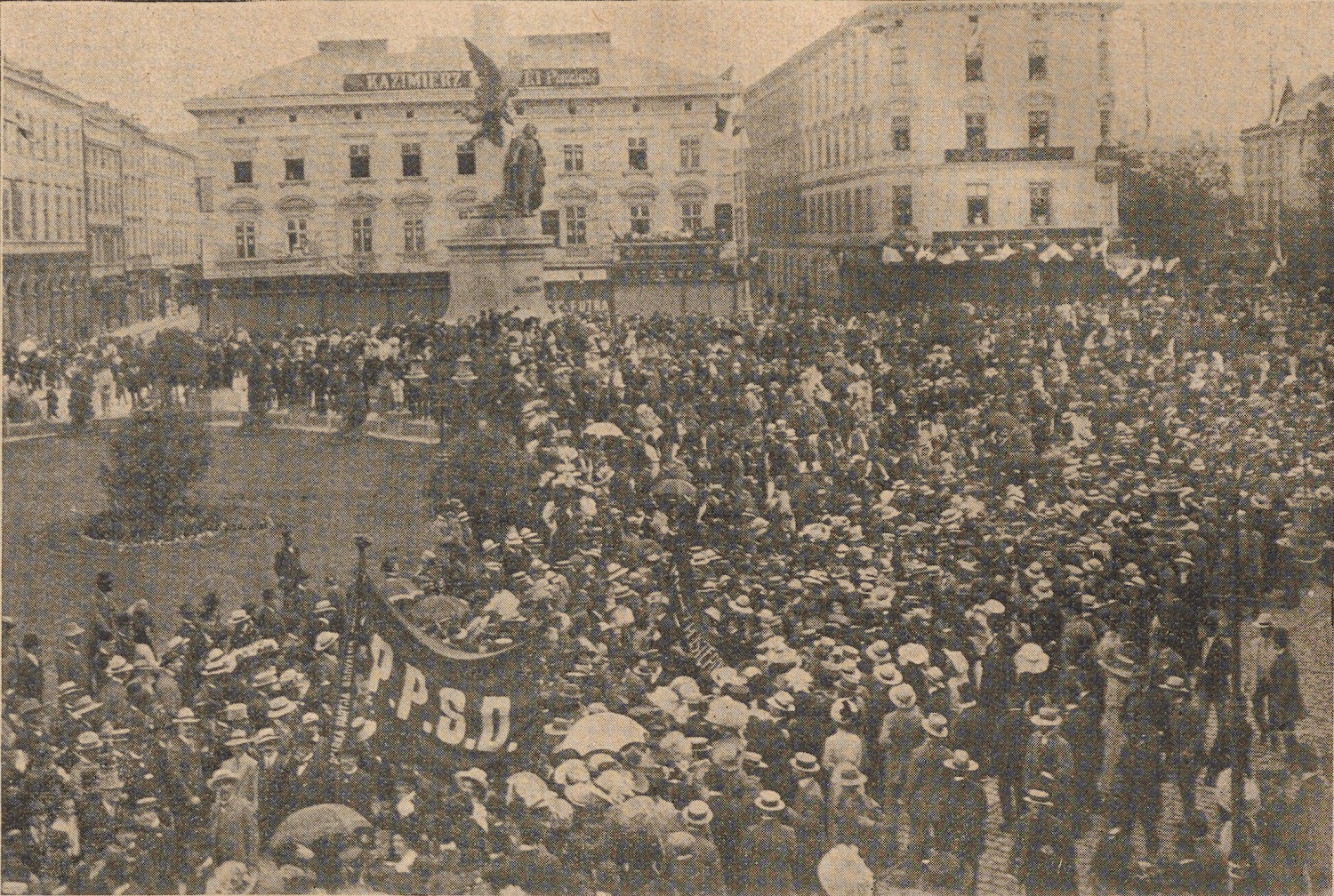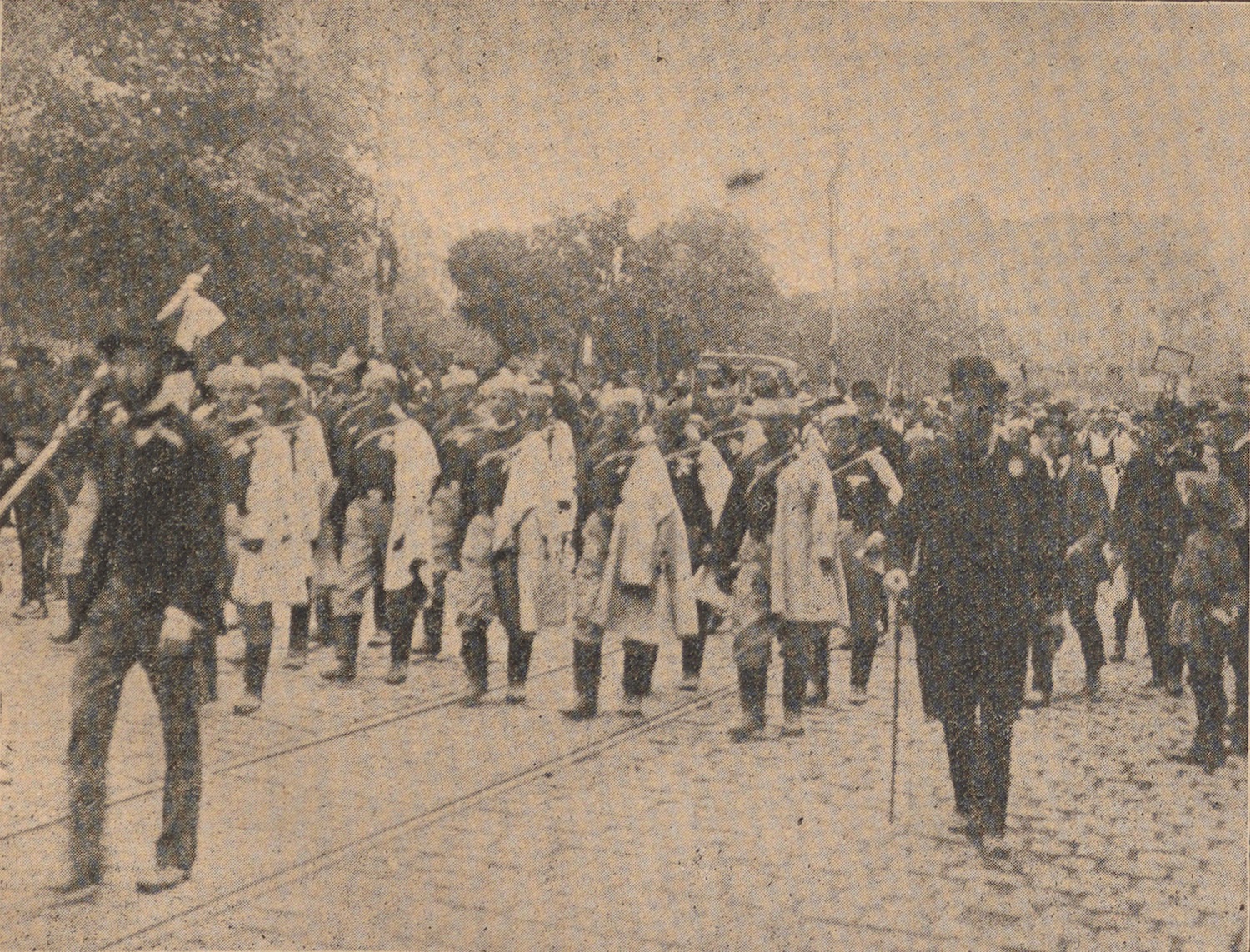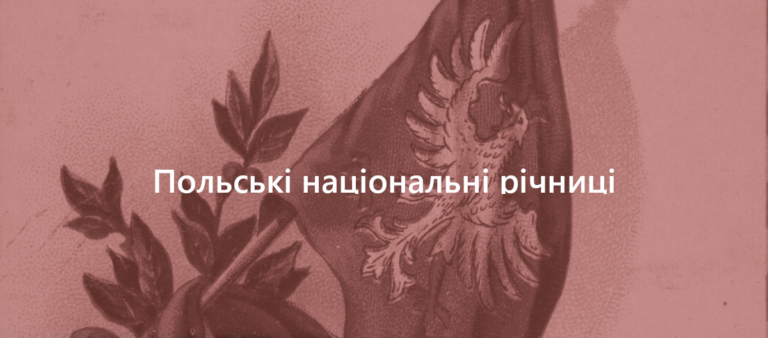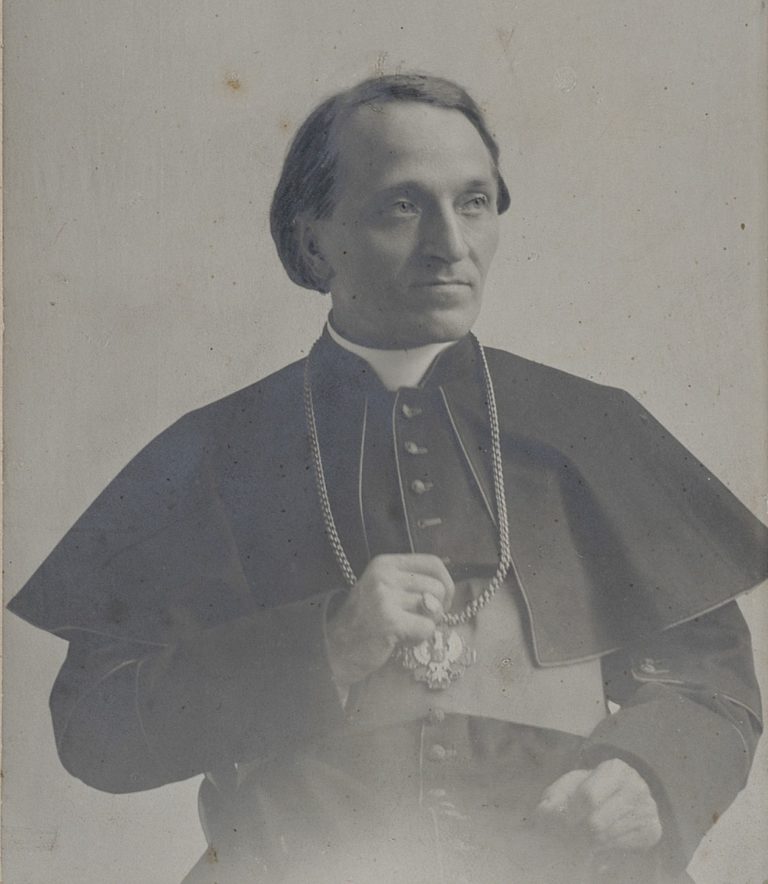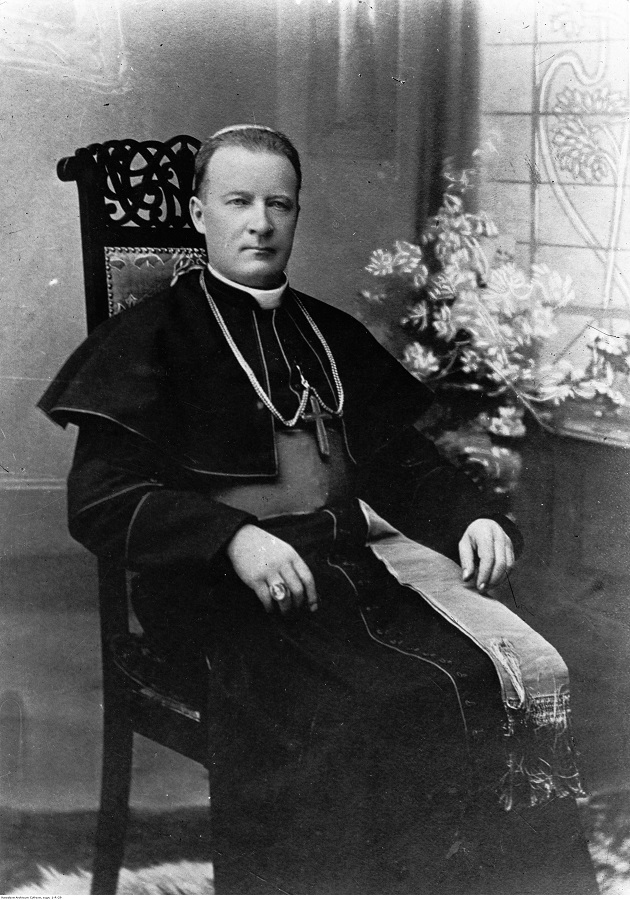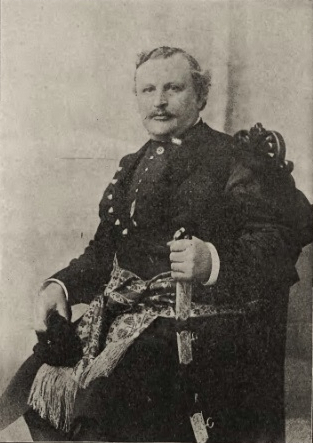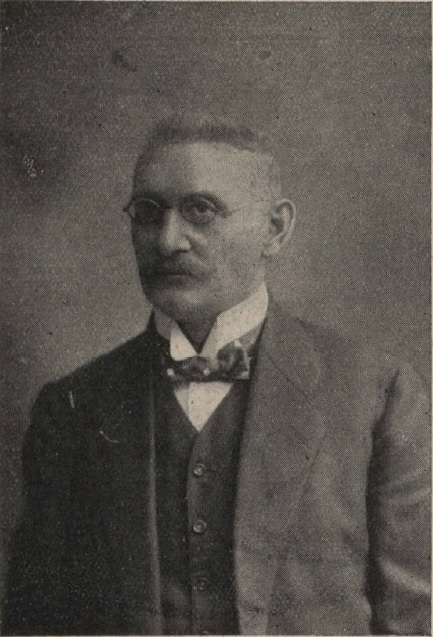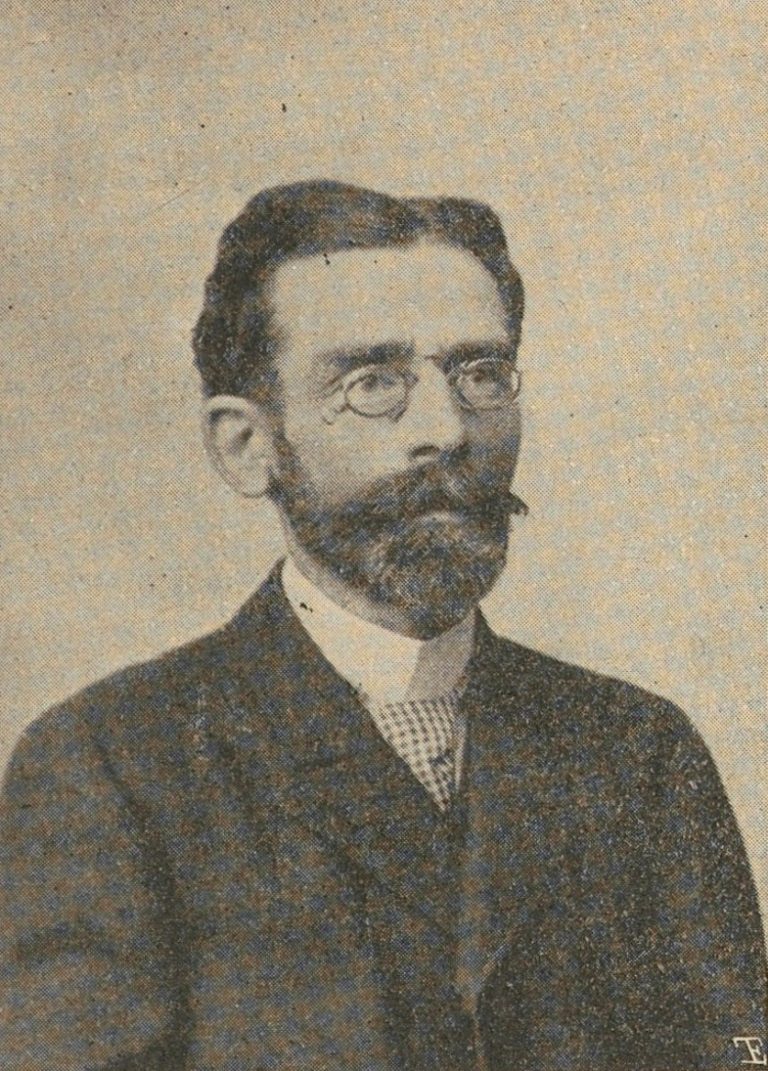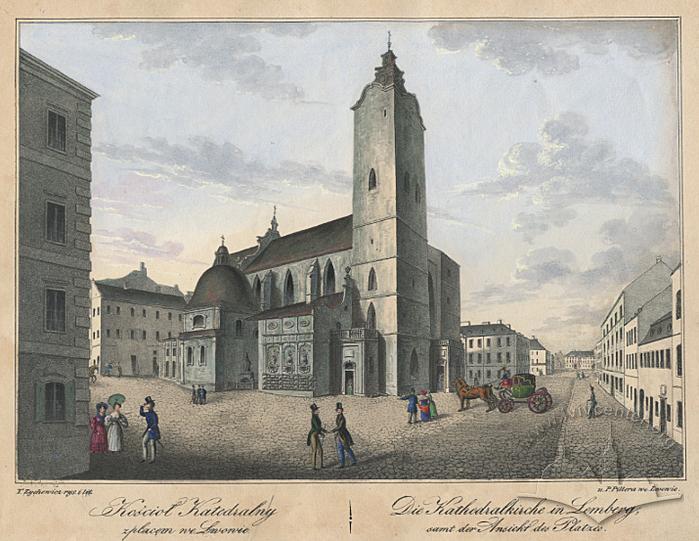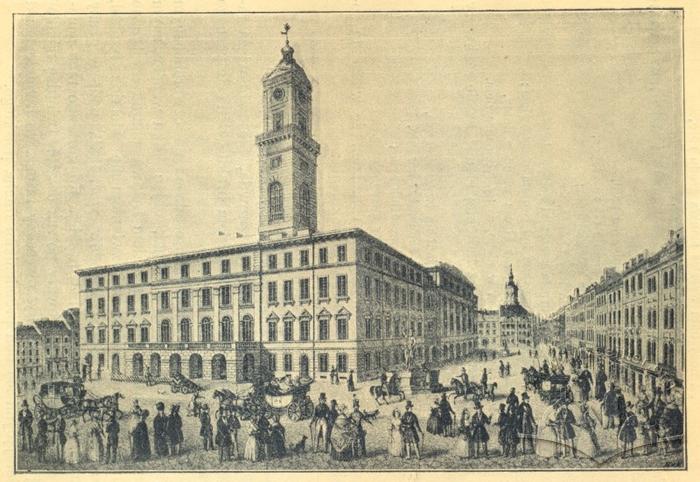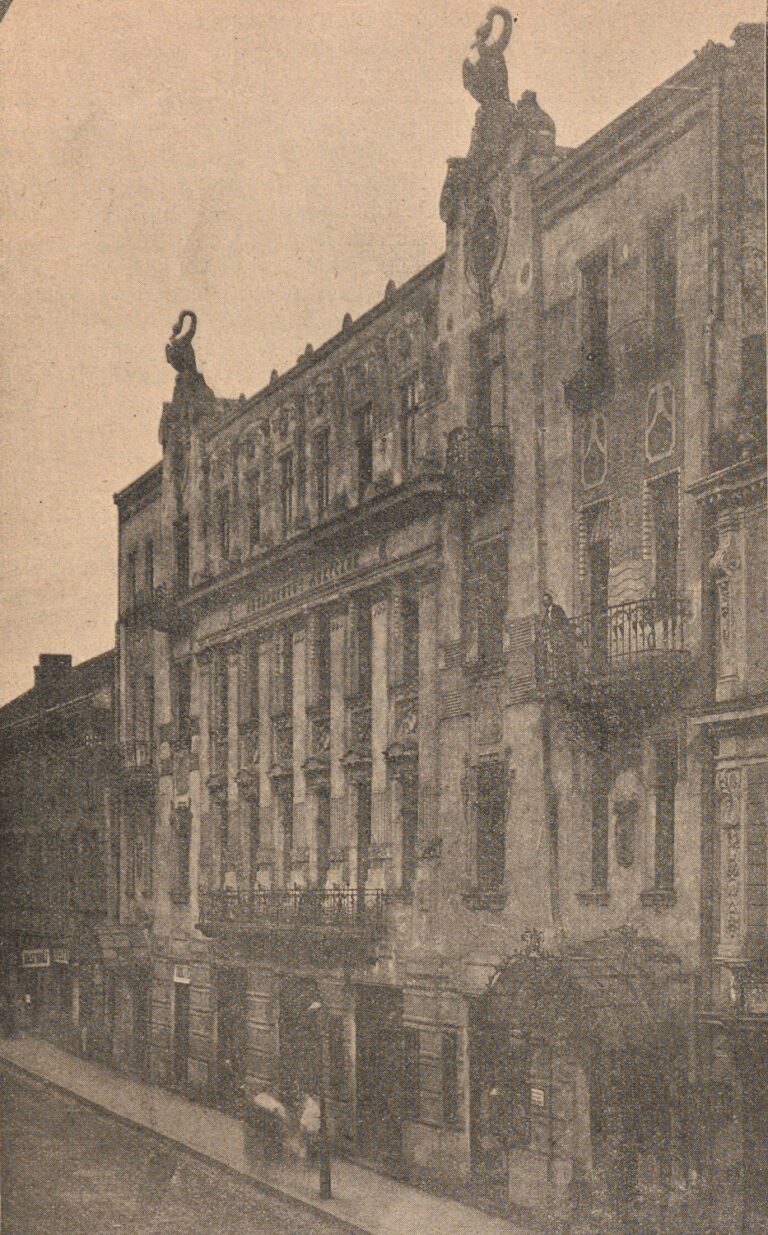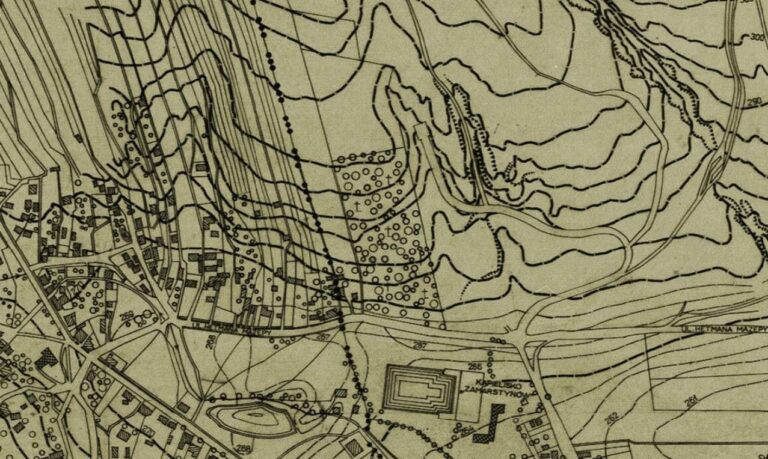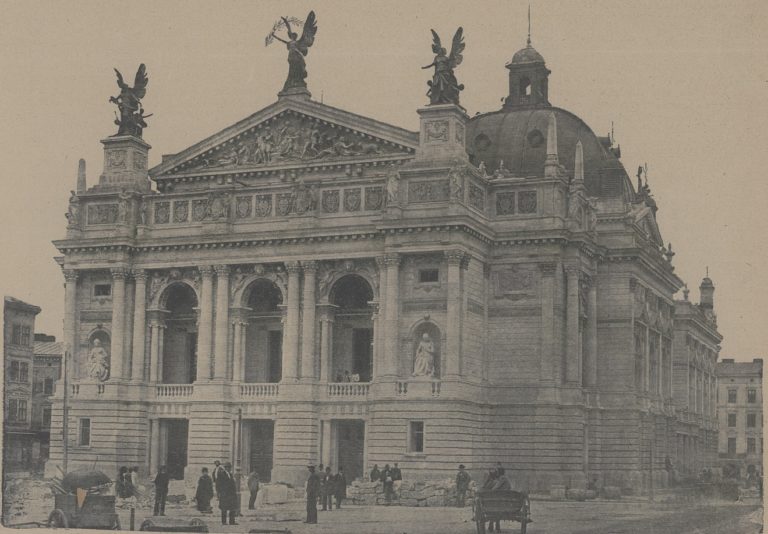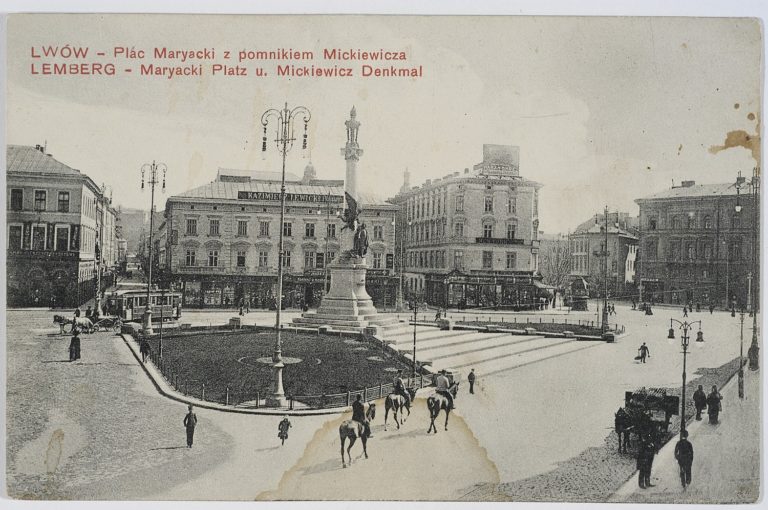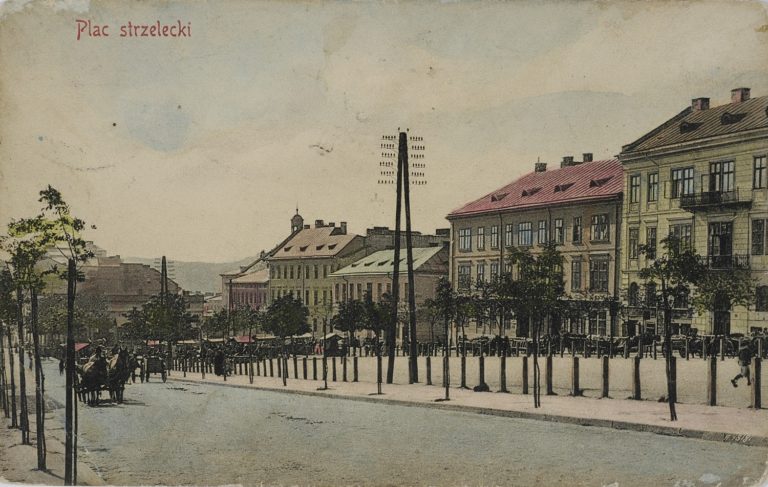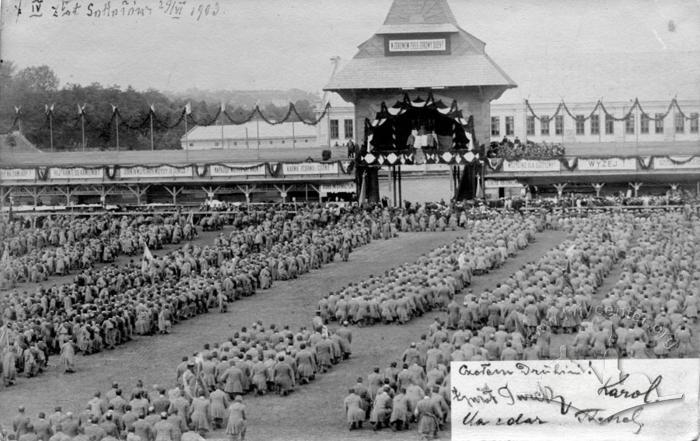The celebration of the victory of the Polish-Lithuanian-Ruthenian forces over the "German" crusaders could not but contain anti-German overtones. Therefore, in order to avoid confrontation with the central government, the press used the phrase "victory over the crusaders," which allowed everyone, including officials, to save their faces. The main events of the celebration took place in Krakow, where the attention of the regional authorities and the local political elite was focused. Therefore, the example of this celebration can be used to consider Lviv as one of the provincial cities.
The Battle of Grunwald was fought in 1410 between the forces of the Teutonic Order on one side and the combined forces of the Kingdom of Poland and the Grand Duchy of Lithuania on the other. The victory of the allies stopped the expansion of the Order and became a precondition for the rapprochement of the Polish and Lithuanian-Ruthenian elites, as well as the rise of the Jagiellonian dynasty. It is considered one of the most important victories in Polish history.
The celebration in 1910 took place against the background of Germany's policy of assimilation in its eastern territories — the former lands of the Polish-Lithuanian Commonwealth. In Germany itself, the Teutonic Order was considered the predecessor of Prussia, so Grunwald was a reference to an old defeat.
In Polish society, Grunwald symbolized resistance to Germanization; at the time, Henryk Sienkiewicz had already written The Crusaders, so the analogies between the events of 500 years ago and the present were more than clear.
Although the anniversary provided an opportunity to revive the Jagiellonian idea of an alliance of "the free with the free and the equal with the equal," in practice Ukrainian and Lithuanian politicians were cautious about the celebrations. They did not want to be "decorations" for a purely Polish patriotic celebration, and they drew attention to the fact that the Poles, oppressed by the Germans, were themselves oppressors in their relations with their eastern neighbors.
Celebration in Krakow
The main part of the celebrations was the unveiling of a monument to King Władysław Jagiełło, the victor of the Battle of Grunwald, in Krakow. Numerous delegations arrived from Lviv, as well as from other cities. The Lviv "representation", which, in addition to officials and deputies, included members of various societies, especially the Sokół, and creative ensembles, was headed by the city's president, Stanisław Ciuchciński. Due to the large number of people who wanted to attend the anniversary celebration in Krakow, the State Railway Directorate organized special trains: on July 14, one from Lviv, and on July 15, two from Lviv and one each from Ternopil, Pidhaitsi, Stryi, and Sokal.
Traditionally, Galicia had the most favorable conditions for celebrations. In the Russian part everything was much more modest: the highest Catholic clergy issued a proclamation that the churches not only could, but should hold services on this occasion. Obviously, there was no celebration of the victory over the Teutons in the German part.
Celebration in Lviv
In Lviv, the "official part" was essentially reduced to a solemn service and the unveiling of a commemorative plaque on the façade of the Latin Cathedral on July 15, 1910. However, it was the president of the city himself who issued invitations to attend these events through the press. The members of the societies who did not travel to Krakow were to arrive at the City Hall at 9:15 a.m. with the banners of their organizations in order to begin the mass at 10:00 a.m. in an organized manner.
The service was followed by the unveiling of a commemorative plaque that the Lviv City Council decided to place on the wall of the Latin Cathedral "in memory of the Victory over the Crusaders at Grunwald." The service was presided over by Archbishop Józef Bilczewski, the City Council was represented by Vice-President Karol Epler, members of the Lviv University Senate led by Rector Błażej Jaszowski, members of the Polytechnic Professorial College, and Vice-Marshal of the Galician Diet Tadeusz Pilat. To the accompaniment of patriotic songs and after the speech of the Vice President of Lviv, a black granite table with a bronze eagle and the coat of arms of Pogonia was unveiled to the public.
The city council did not organize anything of interest, except for the "hejnals" (traditional Krakow horn melodies) from the city hall tower in the morning and the illumination of the same tower in the evening. Therefore, during the day, newspapers describing the events in Krakow were in great demand in Lviv. This was interpreted as "the unity of Lviv with the whole of Poland, which gathered that day near the Wawel."
Instead, the Polish Sokół Society held a field mass and parade in its stadium the day before, followed by a march through the city center to the theater. Peasants, schoolchildren, the fire brigade and a small unit of the Sokół cavalry took part in the march. Workers' organizations gathered at Strzelecki Square and marched to the Adam Mickiewicz monument.
In Zamarstyniv, too, there was a military celebration: on Sunday, July 10, there was a "morning wake-up call" (reminiscent of the military band's wake-up call during the Emperor's visits). The "military" style of the event was also embodied in a "field mass" near the school with the participation of members of Sokół, volunteer fire brigades from Klepariv, Velyke Holosko and Zamarstyniv and other organizations. After the mass the participants marched to the cemetery in Zamarstyniv, where they placed a memorial cross with the inscription "Grunwald 1410-1910". The cross was solemnly blessed, hymns and patriotic songs were sung. Then the participants returned to the school, where the celebration continued at the monument of Juliusz Słowacki. In the afternoon the program continued in the school with performances of choirs and theater groups.
